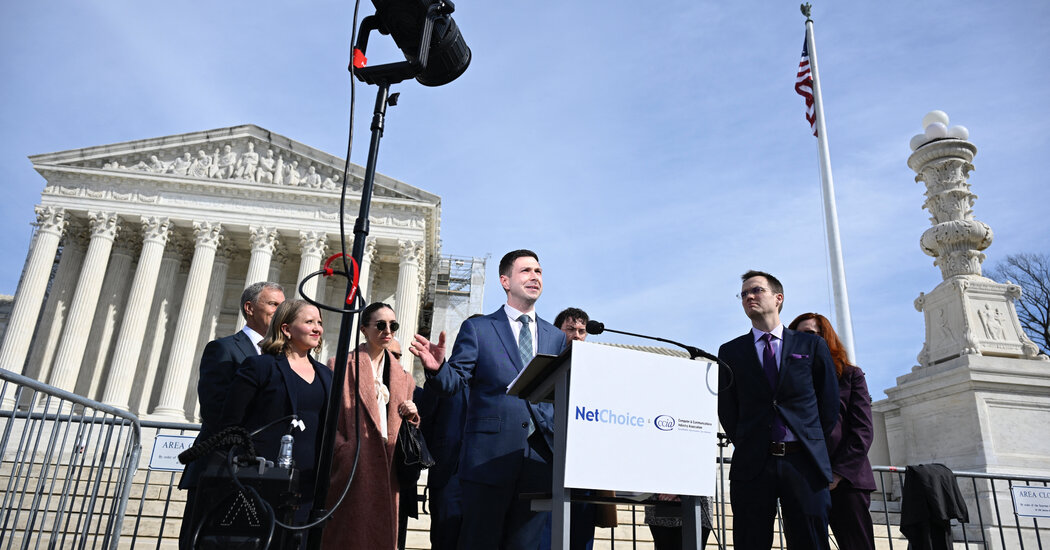NetChoice, backed by tech giants including Meta and Google, has successfully argued in court that Big Tech hosts protected speech.
Ahead of a recent vote in Congress on a child safety bill, a powerful tech lobby representing Google, Meta and other major tech firms sent a forceful warning to lawmakers.
The Kids Online Safety Act was “bad on policy and bad on the law,” the lobby, NetChoice, said in a statement, adding, “Courts across the country repeatedly halted these types of provisions.”
The child safety bill, which would require social media platforms and other sites to limit features that can promote cyberbullying, harassment and the glorification of self-harm, has been a rare piece of legislation with bipartisan support.
But it has largely stalled in Congress lately, thanks in part to NetChoice’s efforts.
The group, which has grown significantly in power and influence over the last decade, is the driving force behind lawsuits that have derailed several state laws regulating the tech industry, including six on child safety. Last week, it filed a seventh lawsuit against a similar child safety law in Tennessee. To win on issues including privacy, child safety, e-commerce and taxes, the lobbying group has relied on a novel legal application of the First Amendment.
NetChoice has effectively argued that the state laws amount in various ways to censorship. Though the statutes are intended to protect children, fight disinformation and bolster privacy, they restrict access to content and could undermine the free expression of individuals and social media companies, the group has claimed.
In these arguments, Big Tech is testing the bounds of the First Amendment, expanding interpretations of the amendment’s definition of freedom of religion, press and speech to provide protections in the internet era. The lobbyists say that Meta, Google, Snap and other social media companies are the modern-day soapboxes of the nation and that the content they host and transmit is protected speech.
